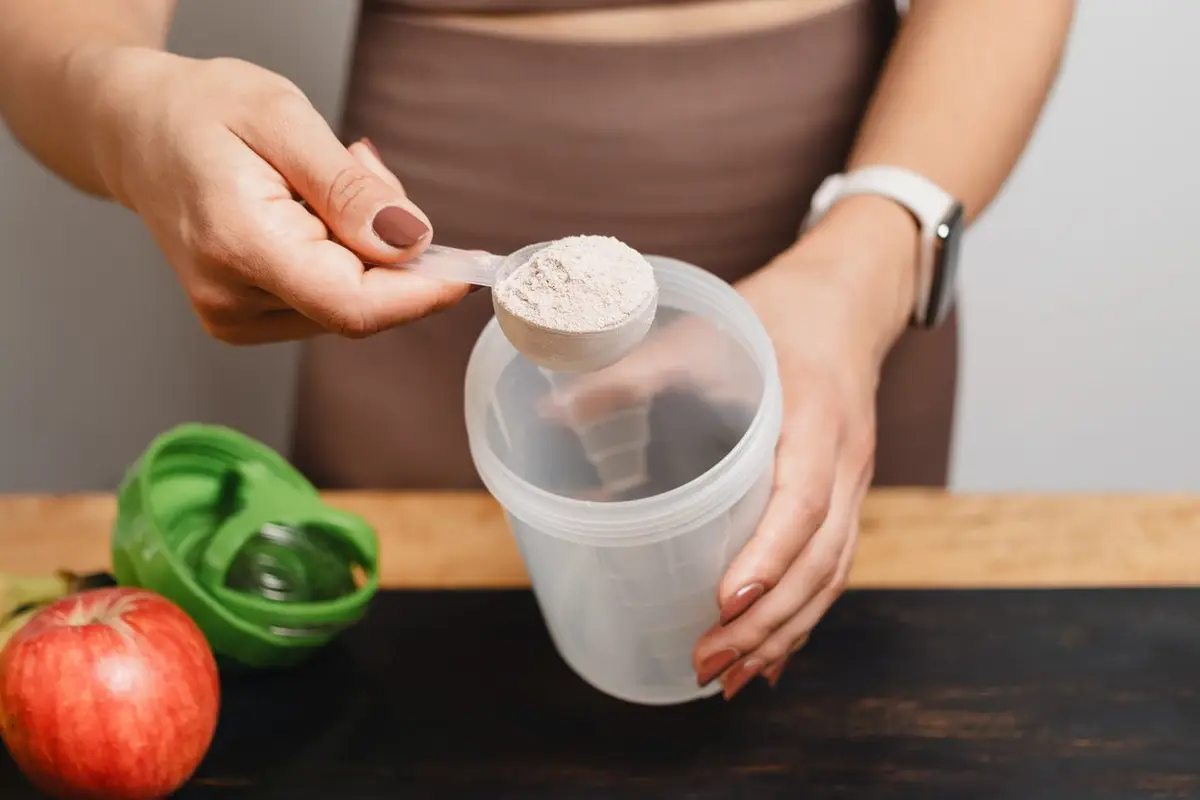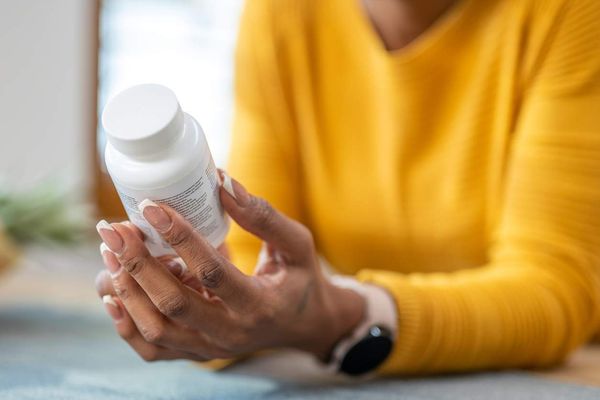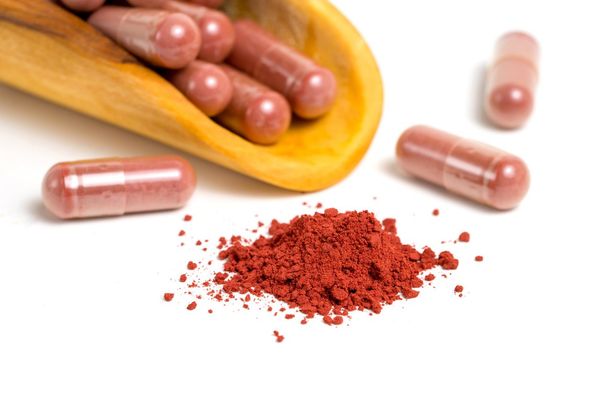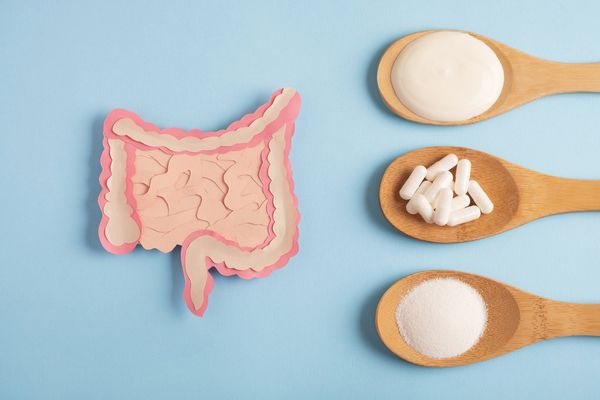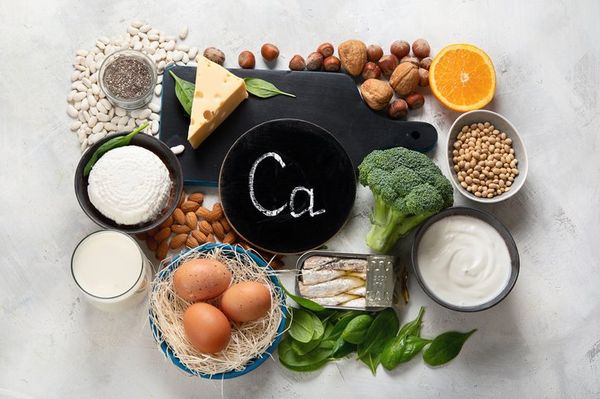Creatine sounds like something your gym-buff ex-roommate used to take by the scoopful. But lately, it's showing up in wellness routines that have nothing to do with six-pack abs or maxing out on squats.
This compound is having a moment, being touted for everything from brain fog to bone health. Social media is buzzing about the benefits, and with that, people have a lot of questions: Is it safe? Will it make me bulky? Does it really help with menopause brain?
Here’s the scoop on what creatine is, what it does, and what women should know before adding it to their supplement shelf.
What is creatine?
Creatine is a substance your body makes naturally — mostly in your liver, kidneys and pancreas — and stores in your muscles. It helps your muscles make quick bursts of energy by recycling a molecule called adenosine triphosphate (ATP), which is the energy source for all living cells. So when you're lifting something heavy, sprinting to catch the bus or busting a dance move, creatine acts like a backup power source.
Certain foods also contain creatine, especially red meat and seafood. But some people don’t get enough through diet alone to see any performance or health benefits, which is why supplements are so popular. This is especially true for women, who have only 20% to 30% of the creatine in their bodies as men, and research shows getting more may be beneficial.
Creatine monohydrate is the most common form and has been studied for decades and considered safe and effective. Most of the research has been done on creatine monohydrate in powder form, so that’s what’s typically recommended. Other versions, like gummies and capsules, may work too, but they haven’t been studied as much yet.
Newer versions of creatine have recently hit the market, like creatine hydrochloride (HCl), but monohydrate is still the gold standard when it comes to research and results.
Why do people take creatine?

iStock.com/jacoblund
Creatine is one of the most widely used supplements in the world, particularly popular among gym-goers. The most common reasons people take creatine are to:
- Build strength and muscle
- Boost high-intensity exercise performance
- Speed up recovery between workouts
- Lessen fatigue during short bursts of activity
Creatine is popular with athletes, active adults and increasingly among older adults who want to combat muscle loss as they age. It’s also gaining traction in rehab settings, where it’s being studied for helping people bounce back from injury or illness.
Because of the recent hype and new research, more people are taking creatine to help with focus or mood, but most still use it to feel stronger, recover faster and get better results from their workouts.
What are the potential benefits of creatine?
Once it’s in your system, creatine can help in several ways. Most of the benefits stem from how it helps your body create energy faster. Here’s what that looks like in real life:
- More strength and lean muscle
Creatine helps your muscles work harder during short bursts of activity, like lifting something heavy or walking up stairs. Over time, this can lead to more strength and muscle. You don’t have to be an athlete to see results — one study found that women who took creatine saw minor improvements in lean body mass even without following a workout plan. But you’ll see the best results using creatine in combination with resistance training.
- Faster recovery between workouts
Creatine helps your muscles quickly regain energy, which means less fatigue between sets and faster recovery after workouts. Some studies suggest it also reduces muscle damage and inflammation after intense activity.
- Brain support
Your brain uses a lot of energy, and creatine can help give it a boost. A review of 16 studies found that creatine may help with memory, focus and reaction time, especially when you’re sleep-deprived, stressed or doing hard mental work. In one small study, people with Alzheimer’s disease took creatine for eight weeks. They had more creatine in their brains and did better on tests for memory, focus and reading. Scientists still need more research to know how much creatine helps with brain aging and Alzheimer’s.
- Mood and mental health
Evidence suggests that creatine might make depression treatments work better, especially when taken with antidepressants. Some studies show that people, especially women, feel better when they take creatine with their antidepressant medication. Experts think creatine helps the brain use energy more easily. It may also lower brain inflammation and support mood by helping balance serotonin and dopamine.
- Menopausal health and aging
Emerging evidence suggests creatine's benefits can support your body through the ups and downs of midlife. As you age, taking creatine along with regular strength training may help keep muscles and bones strong. It may also help improve balance, strength and everyday activities like walking or getting up from a chair.
When estrogen levels decline, many women experience changes in energy, mood, memory and body composition. Early research shows that creatine may help manage these changes by supporting brain function and energy in cells.
One review found that postmenopausal women who took creatine had lower blood sugar and triglyceride levels in their blood after meals. When they used it during a 5-week strength program, they also lost less bone in their hips. Their bone strength stayed steady too, which might help lower the risk of breaks. More research is needed to understand long-term outcomes and, again, the best gains are found when creatine is taken in combination with resistance training.
What are the creatine side effects?
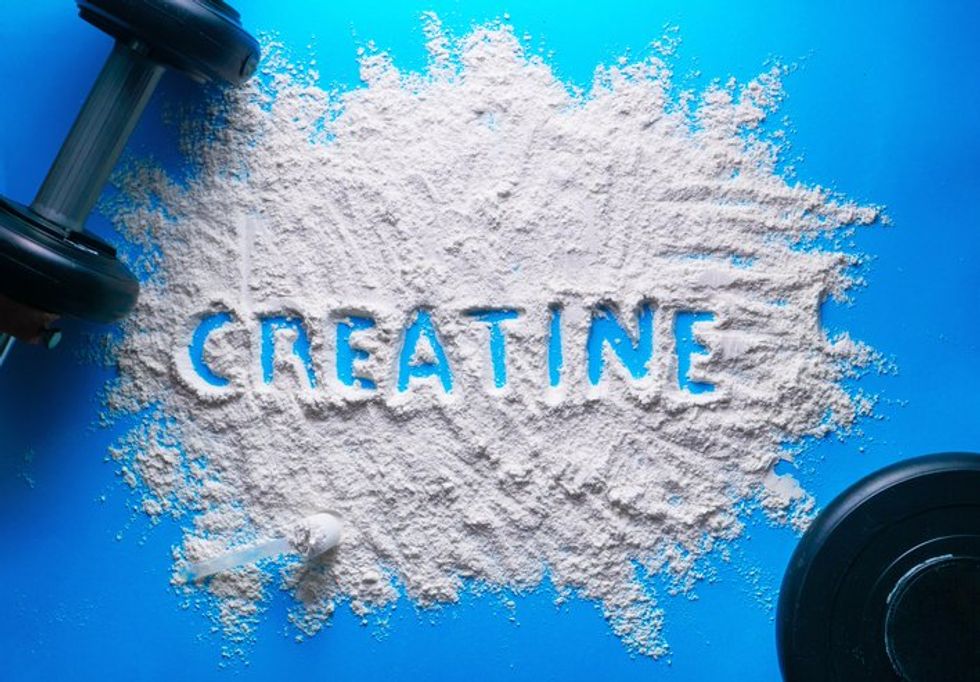
iStock.com/Djavan Rodriguez
Creatine is one of the most-researched supplements out there. For most people, it’s safe when taken as directed, with very few side effects reported in clinical trials. Any side effects that do occur are usually mild and short-lived. These can include:
- Temporary bloating
- Stomach discomfort (especially when taken on an empty stomach)
- Muscle cramping or tightness
- Mild water retention in the early days of supplementation
If you notice you feel a bit puffy when you start creatine, it's just water being pulled into your muscles. Longer studies show no lasting changes in body water levels, especially when taken at recommended doses.
And despite online rumors, creatine does not cause hair loss. A recent clinical trial found no increase in hormones linked to hair thinning.
One other common misconception is that creatine can cause kidney damage, but according to the National Institutes of Health, a large body of research over the last 20 years has found no evidence to support this when taken as directed.
How much creatine should you take?
Experts recommend taking 3 to 5 grams of creatine monohydrate daily. You can do a short loading phase (around 20 grams per day for five days), but it’s not necessary. The key is consistency. Creatine works best when taken every day, not just on workout days.
Some studies suggest taking higher doses based on body weight — around 0.10–0.14 g/kg/day, for bone and metabolic benefits after menopause. But for most people, the standard dose is plenty.
Be sure to drink your creatine right away after mixing, as it can become less effective if you let it sit in liquid for too long.
As with any supplement, it’s smart to check in with your healthcare provider before adding creatine to your routine.

